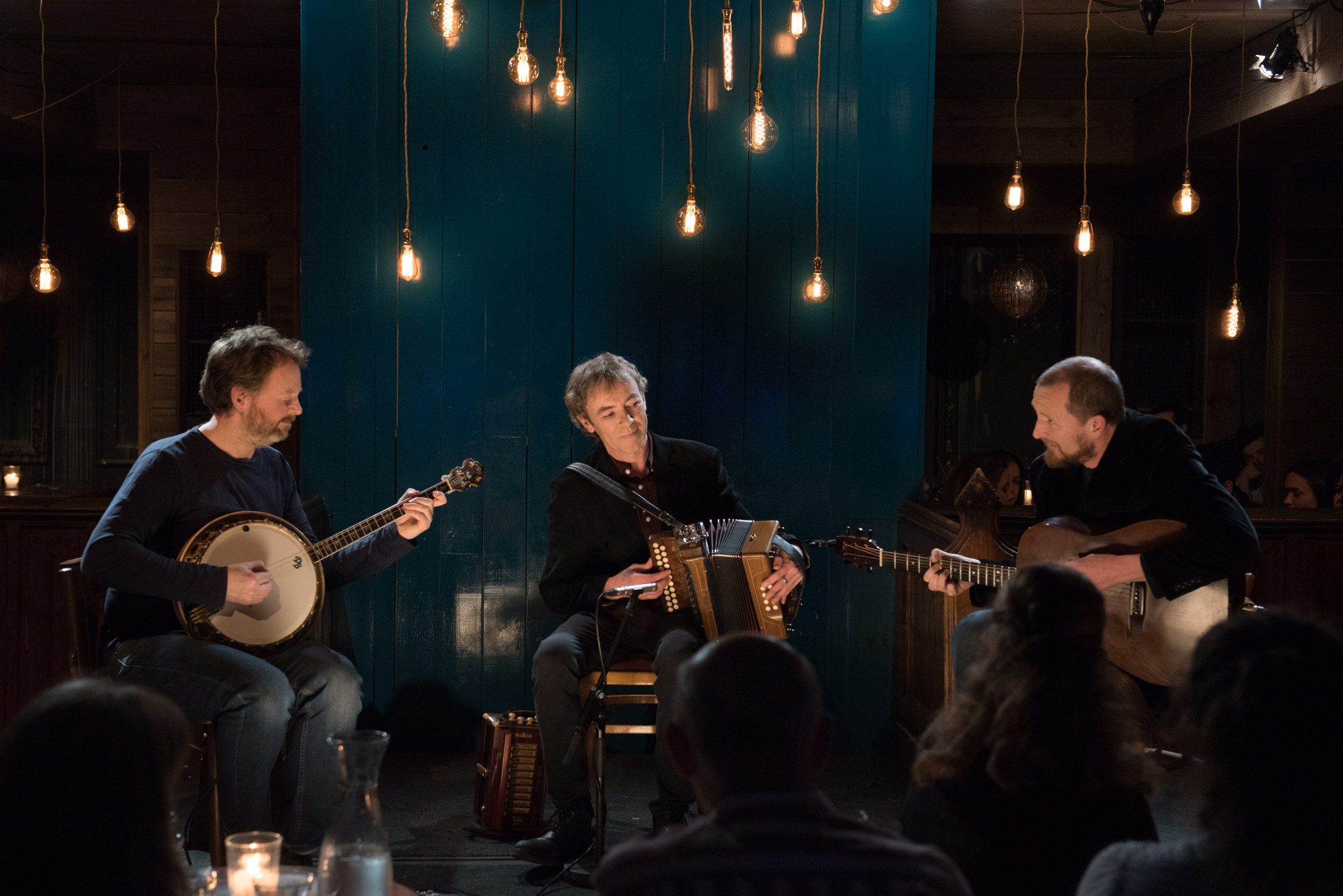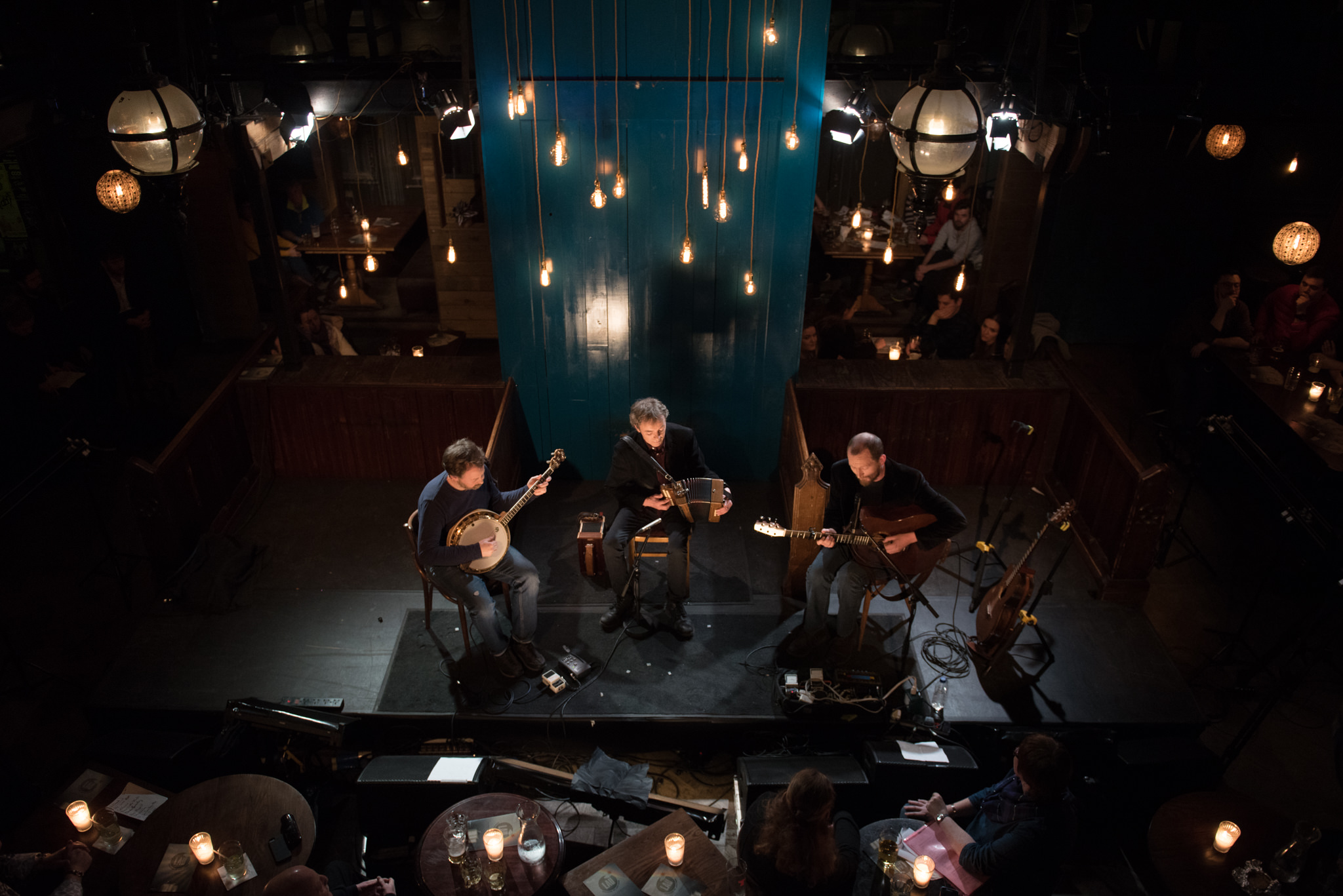Liag – Dermot Byrne, Éamonn Coyne, John Doyle
BUY Liag CD
Dermot, Éamonn and John have recently completed a soon to be released album (28/06/19) of lesser known local traditional music and song from or inspired by South West Donegal, relating how meeting there in the late 80’s at small village festivals has been a cornerstone of their disparate journeys towards their musical careers.
This music remains a basis of their musical journeys from first playing together at small village festivals in Carrick, Kilcar and Glencolmcille, to their present careers as professional musicians living in Ireland, Scotland and America respectively but working worldwide. The music and song is that which is known in the area but with special emphasis on less common repertoire. The album showcases the special connection they have with the area and its music and how it remains a source of inspiration.
Dermot Byrne (button accordion and melodeon) was born into the heart of the music of South West Donegal as his father is from Teileann, outside Carrick. He played from a very young age and consequently has an in-depth knowledge of the music of the area and Donegal music in general as he is from Burnfoot, Inishowen. He now lives in Co. Clare.
Éamonn Coyne (banjo, tenor guitar) originally from Roscommon but brought up in Dublin, and now living in Edinburgh for 22 years, spent many summer holidays in Mucross, just outside Kilcar. This was before he ever played the banjo. Being invited back to play at festivals in the area made him aware of a musical heritage he never knew existed – for example the owner of the seaside campsite he stayed at was a celebrated fiddle player, which was unknown to many of his visitors.
John Doyle (guitar, bouzouki, vocals) – originally from Dublin but now living in Ashville, North Carolina, USA – because of his late uncle, Donal Ward, a keen music enthusiast from the Carrick area, spent many holidays there. This led to a keen interest in the music and song of South West Donegal and on to him playing at the Carrick Fleadh. This was where the three musicians first played together: a pub session at this then annual autumn festival organised by the people of the town put the three together with the late great Con Cassidy.
To say that the music they heard, learnt, played, and subsequently recorded in many different line-ups, came partly from those youthful sessions wouldn’t be a great exaggeration. Year-on-year attendance at different festivals in the area cemented their friendship and the music and song of the area is never very far from their minds even though they are now more likely to meet at much ‘bigger’ festivals all over the world.
Although the local music of South West Donegal is at the heart of this work it is not solely about the music. It is also about the artistic and personal development of the musicians involved who haven’t forgotten one of their great past influences. It underlies much of the music they have made and continue to make since, be they playing with bluegrass royalty Tim O’Brien and Jerry Douglas in Nashville or the Albert Hall, Scottish International band ‘Salsa Celtica’ in Columbia or ‘Altan’ in the White House or indeed all of the above in various concert halls and venues around Ireland.
Neither is the project solely about the music of South West Donegal as a lot of the music played while spending time at such festivals came from far and wide being heavily influenced by Scottish, Shetland and Cape Breton tunes as well as those from all over Ireland. The trio have re-explored this music and endeavoured to record tunes and songs which are not the most popular and often recorded. This is foremost in their minds and is ultimately possible because of the backgrounds of the three involved, their access to personal and public archive material, and the skill and experience they have garnered separately from many years playing and recording. The recording also provides an insight into the music that was being played by the many musical visitors to this area at that time and the great influence the music of the area had on the wider traditional music scene of the time.




